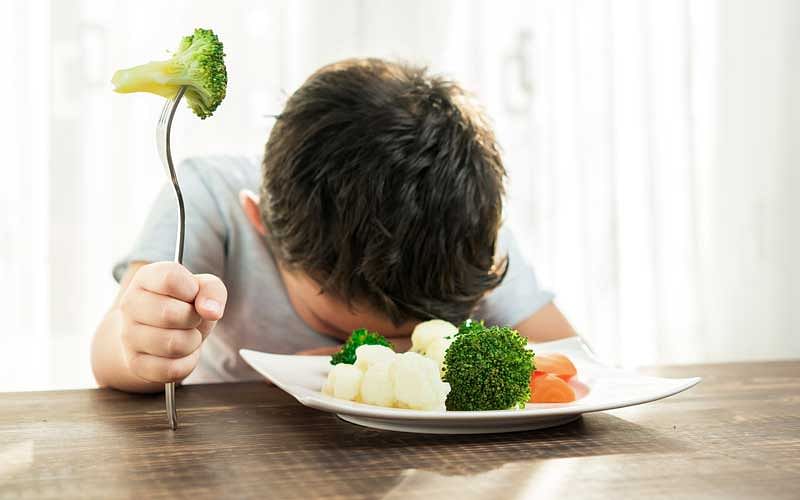
Shruti (name changed) had not yet stepped into her teens when her mother brought her to counsellor Sunanda Vinayachandran.
"Shruti had lost almost 20 kg in six months. She calculated her calories with every bite she took. At one point, she withdrew at the sight of food. She became socially isolated. She befriended mobile apps and exercise regimes. Only when she missed her periods, her mom panicked," recollected Sunanda.
In the sessions that ensued with the counsellor, it became apparent that young Shruti hated herself and the way she looked. She compared herself to her friends. They were, she felt, all skinny and could wear any kind of clothes.
"Though outwardly very bubbly and a high achiever, she was craving for attention, to be loved by all, wanted people to look up to her as perfect – not with respect to her body alone, but to her being helpful and her ability to ‘do it all’. It led to a striking revelation – she was suffering from low self-esteem," said Sunanda.
Eating Disorders (EDs) like Anorexia Nervosa, Bulimia and Binge Eating are catching 'em young. More children are weighing every bite they take with food, clearly becoming their foe.
The surge in numbers are alarming. Unfortunately, most parents don't notice until something goes awfully wrong.
"The number of cases has increased over a period in all age groups," said Sunanda.
"There is a reduction in the age group as well. It has become more common among school children; at least one in five children would have attempted crash dieting to ‘get into shape’ some time or the other, or would personally know someone who has, with or without having led to an Eating Disorder. It’s not a rarity anymore," she informed.
"Earlier, this was almost unheard of in young boys. Now pressure has increased to not just perform but to be socially appealing too. And it is not just the academic pressure. There is also pressure from home on how to look," she said.
Notwithstanding the increasing awareness about Eating Disorders, the question is whether early intervention is being done.
"In a study conducted recently, two-thirds of psychiatrists reported seeing at least one case of Eating Disorder a week in Bengaluru, indicating that EDs are certainly on the rise," said Sulata Shenoy, psychologist and director, Turning Point.
In her own practice, she sees teenagers, both boys and girls overly obsessed with body image increasingly coming in for therapy.
"As EDs are a fairly recent phenomena, there is a presumption that it is the by-product of Westernisation and peer pressure and media exposure," informed Dr Sulata.
She said the pressures faced by today’s young generation are unprecedented.
"On the one hand, there is an erosion of family values and kinship bonds and on the other, there is a tremendous pressure to ‘look good’ and obsess about appearances which are culturally acceptable, fuelled by vested interests such as fashion, movies and cosmetic industry. There is a complex interplay between culture, commerce and pathology," she added.
Children are spending more than a significant amount of time glued to social media. This is fuelling their apathy to food -- all in an attempt to look perfect.
Sunanda also pointed out that after school activities have become academic and result-oriented.
"If there is a non-academic activity, it is monitored and timed. It is also unfortunate that burning of baby fat is not happening as children are spending less time outdoors."
"Adding to all this, is media that focuses on smart thin tall models. So the child's self esteem is bashed up and there is a tendency to self harm," she said.
Finding a solution for self-starvation, especially among children, is easier said than done.
"Children have learnt to hide problems well, thanks to the Internet and social media” said Sunanda adding that “the emotional distance with parents is widening”.
The parents, she said, need counselling adding that most are bringing up children without any family support.
"Initially, I hold sessions with the child, and then with the parents or together. At a very young age, the spoken as well as the unspoken gets scripted in a child's mind and is manifested in different ways. Spend time with the child. Give them unconditional love. Do not associate two unconnected activities for cause and effect teaching (like studies and playtime, good behaviour and good food, good marks and TV time), or compare," Sunanda added.
"Depending on the severity, ED can be treated in an outpatient setting or few may need inpatient or institutional treatment," informed Dr Sulata.
"Even after undergoing treatment she said it is advisable to seek support groups and family therapy.''
"Medical-nutritional therapy, cognitive behaviour therapy, exposure and response prevention therapy are effective. It is not uncommon for ED to overlap with other mental disorders such as anxiety, depression, bipolar disorder and substance abuse, which may need to be treated concomitantly," she added.
